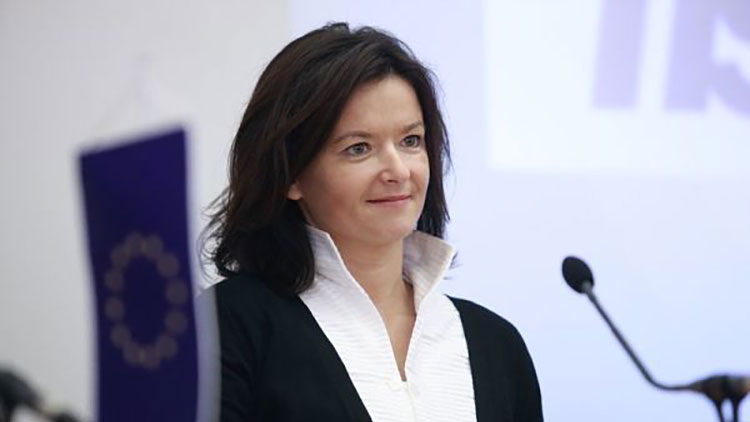A review of the Belgrade-Brussels talks will be the main topic of the forthcoming EU-Serbia SA Parliamentary Committee session, said Tanja Fajon, a member of the European Parliament (S&D) ahead of her visit to Belgrade where she will take part in the EU-Serbia SA Parliamentary Committee session.
“Due to the lack of agreement on a more detailed agenda, one that would guide discussions on a number of other important topics, the review of negotiations will be the only item on the agenda, which is rather uncommon for this type of meeting. Apparently, Serbian side decided to keep the agenda narrow in order not to provoke criticism from European Parliament MPs,” Fajon told Danas daily.
She said that the session would discuss issues of major importance for Serbia’s further advance on the EU path, including the Belgrade-Pristina dialogue and the state of affairs in the area of the rule of law, justice in particular.
“In my role as a shadow rapporteur for Serbia, I am focused mainly on the rule of law and, more precisely, the freedom of media,” Fajon said.
I firmly believe that Serbia’s progress on the path to the EU must be accompanied by progress in democracy, human rights observance and freedom of expression.
“Strengthening of the civil society is one of the main advantages of the EU accession process,” Fajon said.
When asked whether the opening of only two chapters can be justified by insufficient engagement of Serbian authorities to implement justice reform, Fajon said that securing progress in the area of justice was one of the main conditions for a successful opening of chapters 23 and 24. However, she said, the situation in judiciary should be improved above all for the sake of Serbian citizens and consolidating the rule of law.
“As far as I’ve been told, judicial proceedings in Serbia take a very long time, whereas certain important investigations have never been brought to an end. All of that points to the lack of judicial independence and giving advantage to someone’s personal interest over justice and the law,” Fajon said.
A country where justice does not apply to everyone and the justice system fails to offer protection guaranteed by the law is distancing itself from basic democratic values, she said.
Speaking about the media landscape in Serbia, the European MP said that she received complaints about the freedom of media from representatives of Serbian civil society.
Their complaints concern unjust financing of the media, they say that closer ties to authorities bring more money and that those who criticise the government receive less money, derisory or symbolic sums that sooner or later make them shut down their media outlets, Fajon said and noted that the EP had been for years warning of this issue. Unfortunately, she says, the situation seems to deteriorate, not only in Serbia but in the entire region.
Local media, she continues, are in even worse situation due to lack of funding and the fact that local self-governments are in control of the ruling party.
She pointed to journalists’ safety and creation of conditions that would allow them to carry out their research freely: “Unfortunately, there are still pending cases of verbal and physical attacks against journalists as well as unsolved murder cases.”
The creation of conditions for unobstructed work of journalists and pluralism of media as well as making sure that everyone gets their fair share of media space regardless of criticism is the basis for the functioning of democracy,” Fajon said.
She announced that she would take part in a conference on media freedom and journalists’ safety and that she was very interested in hearing what journalists have to say about the challenges they face.
2025 has been mentioned as a possible date of accession of Serbia and Montenegro to the EU, them being the countries that have taken the accession process the furthest, she said.
The Commission announced it would publish the Enlargement Strategy in early February 2018 and we are all eagerly awaiting to see it, she noted. It will set out concrete steps to be taken by Serbia in order to get everything done in said time frame, Fajon said and reiterated that enforcement of laws was much more important than a mere adoption.




